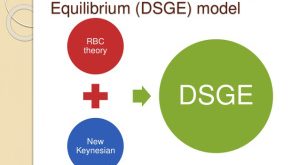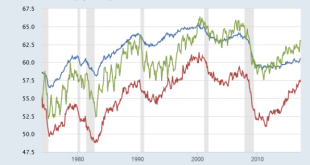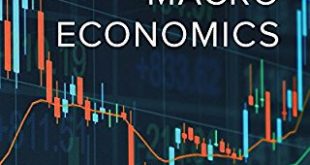from Lars Syll The problem of any branch of knowledge is to systematize a set of particular observations in a more coherent form, called hypothesis or ‘theory.’ Two problems must be resolved by those attempting to develop theory: (1) finding agreement on what has been observed; (2) finding agreement on how to systematize those observations. In economics, there would be more agreement on the second point than on the first. Many would agree that using the short-hand rules of mathematics is...
Read More »Global warming must be addressed now
from Dean Baker There are two enormous myths about global warming. One is that dealing with it is optional. The other is that the measures needed to slow the process will devastate the economy. Neither is true. On the first point, we are already seeing major changes in weather that are almost certainly related to global warming, both in the United States and around the world. In the United States, we are seeing rising water levels eroding beachfront property all along our coast lines. We...
Read More »The spectacular failure of DSGE models
from Lars Syll In most aspects of their lives humans must plan forwards. They take decisions today that affect their future in complex interactions with the decisions of others. When taking such decisions, the available information is only ever a subset of the universe of past and present information, as no individual or group of individuals can be aware of all the relevant information. Hence, views or expectations about the future, relevant for their decisions, use a partial information...
Read More »A non-white recovery in the USA
anic rate First: the elephant in the room: the post 2008 development of the USA white employment rate relative to the black and hispanic rate is, in a historical perspective but also when compared with post 2008 developments in Europe, spectacular. though something seems to have been the matter since 1995. No explanation here but the correlation between the white and the other rates slowly fades away (a hypothesis might be that ‘Blacks’ and ‘Hispanics’ are groups which are characterized...
Read More »Mainstream textbooks — full of utter nonsense!
from Lars Syll The other day yours truly was sent a copy of the new edition of Chad Jones intermediate textbook Macroeconomics (4th ed, W W Norton, 2018). There’s much in the book I like, e. g. Jones’ combining of more traditional short-run macroeconomic analysis with an accessible coverage of the Romer model — the foundation of modern growth theory — and DSGE business cycle models. Unfortunately it also contains some utter nonsense! In chapter 7 — on “The Labor Market, Wages, and...
Read More »Dean Baker – Trump Unveils Outline of his Pro Corporate Tax Plan
TRNN Originally Published on Apr 26, 2017 Published on Apr 26, 2017 Trump would be one of the main beneficiaries of his own tax reform proposal, benefitting from the lowering of "pass-through" income, says CEPR's Dean Baker Special Thanks to The Real News Network for permission to use on DaveStricklers YouTube channel, be sure to visit them for further comprehensive coverage, other news aspects or Donate to them here: goo.gl/BY0Udr Dean Baker co-founded CEPR (Center for Economic and Policy...
Read More »Meta-theory and pluralism in the methodology of Polanyi
from Asad Zaman Currently, I am teaching a course in Advanced Microeconomics where I have started with the premise that conventional economic theory, both Micro and Macro are fundamentally wrong. The number of ways in which they are wrong cannot even be counted. Instead of enumerating errors, the course is devoted to providing a constructive alternative. A lot of the early lectures deal with the basic concepts of optimization and equilibrium, the fundamental building blocks of...
Read More »The dangers of neglecting methodology
from Lars Syll Alex Rosenberg — chair of the philosophy department at Duke University, renowned economic methodologist and author of Economics — Mathematical Politics or Science of Diminshing Returns? — had an interesting article up on What’s Wrong with Paul Krugman’s Philosophy of Economics some time ago. Writes Rosenberg: Krugman writes: ‘So how do you do useful economics? In general, what we really do is combine maximization-and-equilibrium as a first cut with a variety of ad hoc...
Read More »How the Eurozone damaged French politics — and this year’s presidential election
from Mark Weisbrot As France heads into the second and final round of its presidential election on Sunday, a number of observers have compared the choice between the far-right candidate Marine Le Pen and centrist neoliberal Emmanuel Macron with the Trump-Clinton contest of 2016. There are similarities: Le Pen, who is politely called xenophobic, like Trump represents an anti-immigrant, right-wing nationalism combined with some populist appeals. Macron is a former investment banker and...
Read More »Class, in a nutshell
from David Ruccio What happens when you combine conspicuous consumption and consumption productivity? You get Barracuda Straight Leg Jeans—complete with “crackled, caked-on muddy coating”—on sale for $425 at Nordstrom. When Thorstein Veblen invented the term “conspicuous consumption,” in his Theory of the Leisure Class (pdf), he was referring to late-nineteenth-century America as having entered the “predatory phase” of culture, when the people at the top obtained their goods by seizure...
Read More » Real-World Economics Review
Real-World Economics Review







